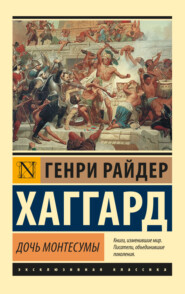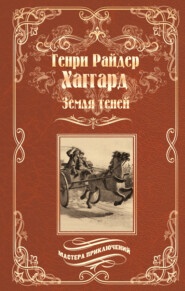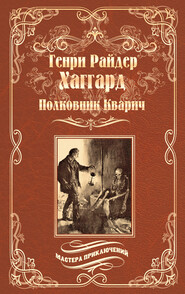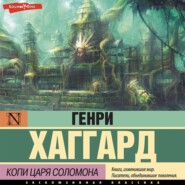По всем вопросам обращайтесь на: info@litportal.ru
(©) 2003-2024.
✖
The World's Desire
Настройки чтения
Размер шрифта
Высота строк
Поля
He loses her who gains her,
Who watches day by day
The dust of time that stains her,
The griefs that leave her grey,
The flesh that yet enchains her
Whose grace hath passed away!
Oh, happier he who gains not
The Love some seem to gain:
The joy that custom stains not
Shall still with him remain,
The loveliness that wanes not,
The love that ne’er can wane.
In dreams she grows not older
The lands of Dream among,
Though all the world wax colder,
Though all the songs be sung,
In dreams doth he behold her
Still fair and kind and young.
Now the silence died away, and again madness came upon those who had listened and looked. The men without the wall once more hurled themselves against the gates, while the women clung to them, shrieking curses on the beauty of the Hathor, for the song meant nothing to these women, and their arms were about those whom they loved and who won them their bread. But most of the men who were in the outer court rushed up to the inner gates within which stood the alabaster shrine of the Hathor. Some flung themselves upon the ground and clutched at it, as in dreams men fling themselves down to be saved from falling into a pit that has no bottom. Yet as in such an evil slumber the dreamer is drawn inch by inch to the mouth of the pit by an unseen hand, so these wretched men were dragged along the ground by the might of their own desire. In vain they set their feet against the stones to hold themselves from going, for they thrust forward yet more fiercely with their hands, and thus little by little drew near the inner gates writhing forwards yet moving backwards like a wounded snake dragged along by a rope. For of those who thus entered the outer court and looked upon the Hathor, few might go back alive.
Now the priests drew the cloths from their eyes, and rising, flung wide the second gates, and there, but a little way off, the veil of the shrine wavered as if in a wind. For now the doors beyond the veil were thrown open, as might be seen when the wind swayed its Tyrian web, and through the curtain came the sound of the same sweet singing.
“Draw near! Draw near!” cried the ancient priest. “Let him who would win the Hathor draw near!”
Now at first the Wanderer was minded to rush on. But his desire had not wholly overcome him, nor had his wisdom left him. He took counsel with his heart and waited to let the others go, and to see how it fared with them.
The worshippers were now hurrying back and now darting onwards, as fear and longing seized them, till the man who was blind drew near, led by the hand of a priest, for his hound might not enter the second court of the temple.
“Do ye fear?” he cried. “Cowards, I fear not. It is better to look upon the glory of the Hathor and die than to live and never see her more. Set my face straight, ye priests, set my face straight, at the worst I can but die.”
So they led him as near the curtains as they dared to go and set his face straight. Then with a great cry he rushed on. But he was caught and whirled about like a leaf in a wind, so that he fell. He rose and again rushed on, again to be whirled back. A third time he rose and rushed on, smiting with his blind man’s staff. The blow fell, and stayed in mid-air, and there came a hollow sound as of a smitten shield, and the staff that dealt the blow was shattered. Then there was a noise like the noise of clashing swords, and the man instantly sank down dead, though the Wanderer could see no wound upon him.
“Draw near! Draw near!” cried the priest again. “This one is fallen. Let him who would win the Hathor draw near!”
Then the man who had fled from the host of the Apura rushed forward, crying on the Lion of his tribe. Back he was hurled, and back again, but at the third time once more there came the sound of clashing swords, and he too fell dead.
“Draw near! Draw near!” cried the priest. “Another has fallen! Let him who would win the Hathor draw near!”
And now man after man rushed on, to be first hurled back and then slain of the clashing swords. And at length all were slain save the Wanderer alone.
Then the priest spake:
“Wilt thou indeed rush on to doom, thou glorious man? Thou hast seen the fate of many. Be warned and turn away.”
“Never did I turn from man or ghost,” said the Wanderer, and drawing his short sword he came near, warily covering his head with his broad shield, while the priests stood back to see him die. Now, the Wanderer had marked that none were touched till they stood at the very threshold of the doorway. Therefore he uttered a prayer to Aphrodite and came on slowly till his feet were within a bow’s length of the threshold, and there he stood and listened. Now he could hear the very words of the song that the Hathor sang as she wove at her loom. So dread and sweet it was that for a while he thought no more on the Guardians of the Gate, nor of how he might win the way, nor of aught save the song. For she was singing shrill and clear in his own dear tongue, the tongue of the Achæans:
Paint with threads of gold and scarlet, paint the battles fought for me,
All the wars for Argive Helen; storm and sack by land or sea;
All the tale of loves and sorrows that have been and are to be.
Paint her lips that like a cup have pledged the lips of heroes all,
Paint her golden hair unwhitened while the many winters fall,
Paint the beauty that is mistress of the wide world and its thrall!
Paint the storms of ships and chariots, rain of arrows flying far,
Paint the waves of Warfare leaping up at Beauty like a star,
Like a star that pale and trembling hangs above the waves of War.
Paint the ancient Ilios fallen; paint the flames that scaled the sky,
When the foe was in the fortress, when the trumpet and the cry
Rang of men in their last onset, men whose hour had dawned to die.
Woe for me once loved of all men, me that never yet have known
How to love the hearts that loved me. Woe for woe, who hear the moan
Of my lovers’ ghosts that perished in their cities overthrown.
Is there not, of Gods or mortals, oh, ye Gods, is there not one —
One whose heart shall mate with my heart, one to love ere all be done,
All the tales of wars that shall be for my love beneath the sun?
Now the song died away, and the Wanderer once more bethought him of the Wardens of the Gate and of the battle which he must fight. But as he braced himself to rush on against the unseen foe the music of the singing swelled forth again, and whether he willed it or willed it not, so sweet was its magic that there he must wait till the song was done. And now stronger and more gladly rang the sweet shrill voice, like the voice of one who has made moan through the livelong winter night, and now sees the chariot of the dawn climbing the eastern sky. And thus the Hathor sang:
Ah, within my heart a hunger for the love unfelt, unknown,
Stirs at length, and wakes and murmurs as a child that wakes to moan,
Left to sleep within some silent house of strangers and alone.
So my heart awakes, and waking, moans with hunger and with cold,
Cries in pain of dim remembrance for the joy that was of old;
For the love that was, that shall be, half forgot and half foretold.
Have I dreamed it or remembered? In another world was I,
Lived and loved in alien seasons, moved beneath a golden sky,
In a golden clime where never came the strife of men that die.
But the Gods themselves were jealous, for our bliss was over great,
And they brought on us division, and the horror of their Hate,
And they set the Snake between us, and the twining coils of Fate.
And they said, “Go forth and seek each other’s face, and only find
Shadows of that face ye long for, dreams of days left far behind,
Love the shadows and be loved with loves that waver as the wind.”
Once more the sweet singing died away, but as the Wanderer grasped his sword and fixed the broad shield upon his arm he remembered the dream of Meriamun the Queen, which had been told him by Rei the Priest. For in that dream twain who had sinned were made three, and through many deaths and lives must seek each other’s face. And now it seemed that the burden of the song was the burden of the dream.
Then he thought no more on dreams, or songs, or omens, but only on the deadly foe that stood before him wrapped in darkness, and on Helen, in whose arms he yet should lie, for so the Goddess had sworn to him in sea-girt Ithaca. He spoke no word, he named no God, but sprang forward as a lion springs from his bed of reeds; and, lo! his buckler clashed against shields that barred the way, and invisible arms seized him to hurl him back. But no weakling was the Wanderer, thus to be pushed aside by magic, but the stoutest man left alive in the whole world now that Aias, Telamon’s son, was dead. The priests wondered as they saw how he gave back never a step, for all the might of the Wardens of the Gate, but lifted his short sword and hewed down so terribly that fire leapt from the air where the short sword fell, the good short sword of Euryalus the Phæacian. Then came the clashing of the swords, and from all the golden armour that once the god-like Paris wore, ay, from buckler, helm, and greaves, and breastplate the sparks streamed up as they stream from the anvil of the smith when he smites great blows on swords made white with fire.

















